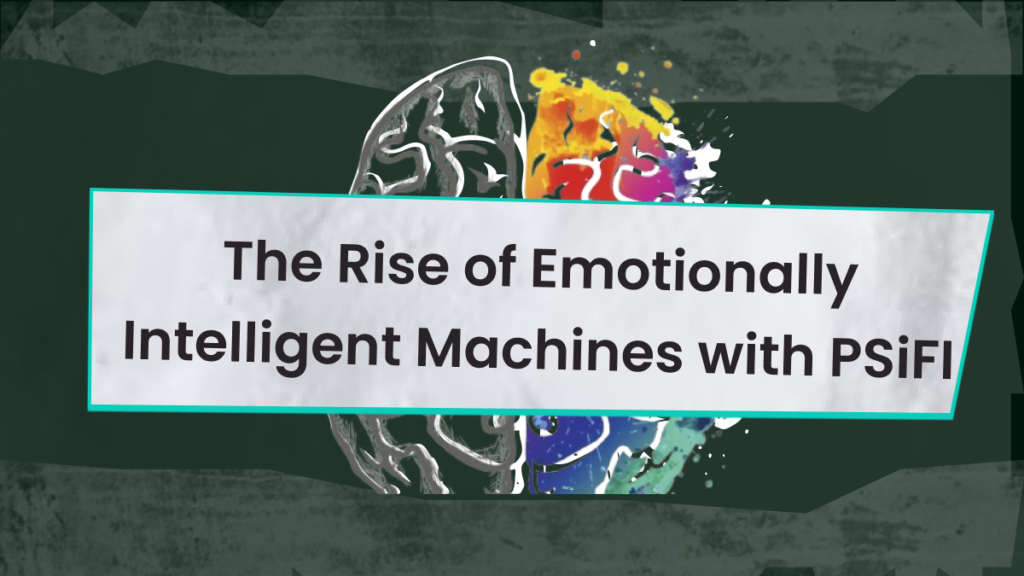The Rise of Emotionally Intelligent Machines with PSiFI

A groundbreaking technology from UNIST, South Korea, is poised to fundamentally alter how we interact with machines. The personalized skin-integrated facial interface (PSiFI) represents a significant leap forward in emotion recognition technology, offering a glimpse into a future of emotionally intelligent machines. This self-powered and wearable system boasts the remarkable ability to recognize human emotions in real-time by harnessing insights from both facial expressions and vocal cues.
PSiFI: A Multifaceted Marvel of Emotion Recognition
One of PSiFI’s key strengths lies in its multi-modal approach to emotion recognition. Unlike conventional methods that rely solely on facial expressions, PSiFI takes a more nuanced approach, simultaneously capturing and analyzing data from both facial expressions and vocal cord vibrations. This comprehensive understanding of an individual’s emotional state is achieved by leveraging a first-of-its-kind bidirectional triboelectric strain and vibration sensor. This innovative sensor, embedded within the PSiFI’s self-powered and stretchable design, seamlessly integrates with the user’s skin for exceptional comfort and wearability. The elimination of bulky external power sources and cumbersome wires further enhances user-friendliness and practicality for everyday use. Additionally, the system transmits data wirelessly, enabling real-time emotion recognition without the constraints of physical connections.
Beyond the Lab: The Transformative Potential of PSiFI
The potential applications of PSiFI extend far beyond the realm of mere technological novelty. This innovative system holds the power to personalize user experiences across various domains. Imagine a VR environment that transforms from a tranquil underwater scene to a heart-pounding rollercoaster ride based on your emotional state, detected by PSiFI. Educational environments could leverage PSiFI to tailor learning materials and delivery methods based on students’ emotional engagement, fostering a more effective and engaging learning experience. PSiFI’s ability to personalize extends to various other applications, including customer service, where the system could be used to personalize interactions with customers, enabling service providers to adjust their communication style and recommendations based on the customer’s emotional state. These are just a few examples of the vast potential PSiFI holds for transforming human-machine interaction across various sectors.
A New Era of Human-Machine Interaction
The development of PSiFI signifies a significant leap forward in emotion recognition technology. By addressing the complexities of human emotions and offering a user-friendly, real-time solution, this innovation paves the way for a future where machines can not only understand our emotions but also adapt their responses accordingly. This heralds a new era of emotionally intelligent machines capable of fostering more natural, intuitive, and personalized interactions between humans and technology. As research and development continue, PSiFI has the potential to redefine the very foundation of human-machine interaction, ushering in a future brimming with possibilities for more natural, engaging, and emotionally aware interactions between humans and machines.
The potential impact of PSiFI extends beyond the individual user experience. Imagine a world where smart homes adjust lighting and temperature based on the emotional state of the occupants, creating a more calming or invigorating environment as needed. In the healthcare domain, PSiFI could be used to monitor a patient’s emotional well-being during treatment or therapy sessions, allowing healthcare professionals to tailor their approach and interventions more effectively. The possibilities for improved communication and understanding between humans and machines are vast and far-reaching.
However, it is important to acknowledge the potential ethical considerations surrounding this technology. As PSiFI grants machines the ability to interpret human emotions, it is crucial to establish clear guidelines and regulations regarding data privacy, security, and potential biases within the algorithms. By ensuring responsible development and implementation, PSiFI has the potential to revolutionize human-machine interaction for the greater good, ushering in a future of mutually beneficial and emotionally intelligent interactions.

